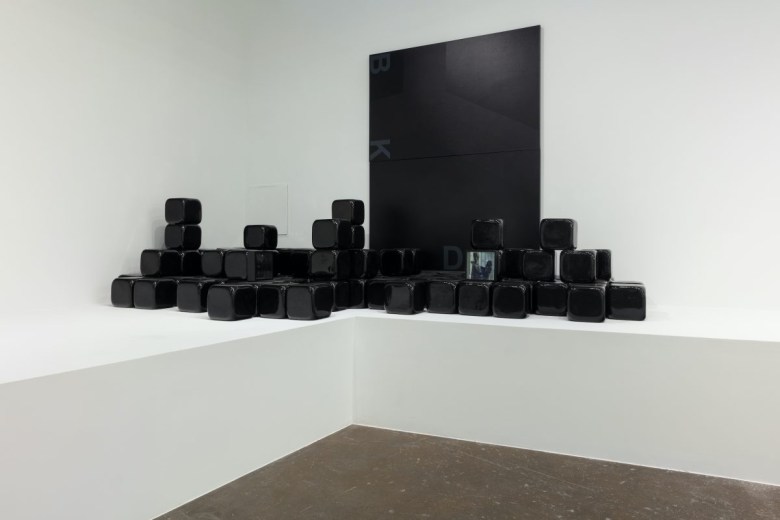DALLAS — In 2003, the artist Eduardo Sarabia left his native Los Angeles for what he thought would be a few months in Mexico. He’d been invited to do an informal residency at Cerámica Suro, a studio and workshop in Guadalajara that has invited hundreds of international artists to create new pieces at their facility. The experience proved pivotal for Sarabia: not only did he develop the punchy painted ceramic vessels that he’s now known for at Cerámica Suro, but he’s lived and worked in Guadalajara ever since.
Sarabia’s story expresses something of Cerámica Suro’s magic, and the creative community that it has fostered. Opened in 1951 in Tlaquepaque, the factory originally produced dinnerware and decorative objects inspired by local artisanal traditions. In the 1990s, the founder’s sons, José Noé Suro and the late Luis Miguel, took the business in a new direction. In addition to their previous production, they began to seek out artists — including those, like Sarabia, who had never worked with ceramics before — offering their facility as the site for experimental collaborations in clay.
Along the way, José Noé and his wife, Marcela Preciado, have amassed a collection of over 700 artworks, many of them created and gifted by participating Suro artists. Cerámica Suro: A Story of Collaboration, Production, and Collecting in the Contemporary Arts at Dallas Contemporary is the first presentation of the collection in the United States. With more than 100 works by some 80 artists, the exhibition is a vivid document of the factory’s history and a rare glimpse into its extraordinary range of production.

Not everything on view is clay-based: some of Cerámica Suro’s artists have chosen to work with materials like bronze, aluminum, fiberglass, blown glass, wood, and steel, and the Suro collection also includes textiles, collages, photographs, paintings, drawings, and sculptures. A smaller section of the exhibition is dedicated to the factory’s very active work with industrial design and architectural projects, teaming with designers and architects to manufacture objects, many of which can be seen in restaurants, public spaces, and private homes around Dallas. But the majority of the exhibition — and the part that is most engaging to experience — focuses on ceramic works created by invited artists collaborating with factory staff.
Take, for instance, Thomas Glassford’s 1995 Autogol series, in which mysterious, seed-like forms are painted with delicate floral designs that recall Guadalajara’s decorative arts heritage. A few steps away, Alejandro García Contreras’s “My Funny Valentine” (2021) pairs erotic imagery on spiky clay vessels with spidery chains, sand, and glass drops in a kind of occult altar. Nearby, a group of tangy-colored bed pans makes up John Baldessari’s “The Artist Is a Fountain” (2022). In other cases, clay transforms into a shimmering golden urn (Jorge Pardo), uniform black cubes (Adam Pendleton), and even a football-sized tomato (Pardo again).
The exhibition was organized by Viviana Kuri, who curated the show’s previous iteration at Guadalajara’s Museo de Arte de Zapopan between 2021 and 2022. Kuri writes that Cerámica Suro is a place “Where it is possible, they say, for any wish to be fulfilled.” The astonishing variety of artworks on view is a delightful testament to this: their wide-ranging shapes and impeccable execution point back to the people who gave form to the invited artists’ ideas. Cerámica Suro has hosted more than 500 artists from around the world, some of whom are very famous. But in this exhibition, it is the factory’s team that truly shines.
print on cotton paper; center: Miguel Calderón, “Resistol 5000” (2002), resin with metal; right: Gil Garea, “Untitled,” glazed ceramic
Cerámica Suro: A Story of Collaboration, Production, and Collecting in the Contemporary Arts continues at Dallas Contemporary (161 Glass Street, Dallas, Texas) through December 31. The exhibition was curated by Viviana Kuri.